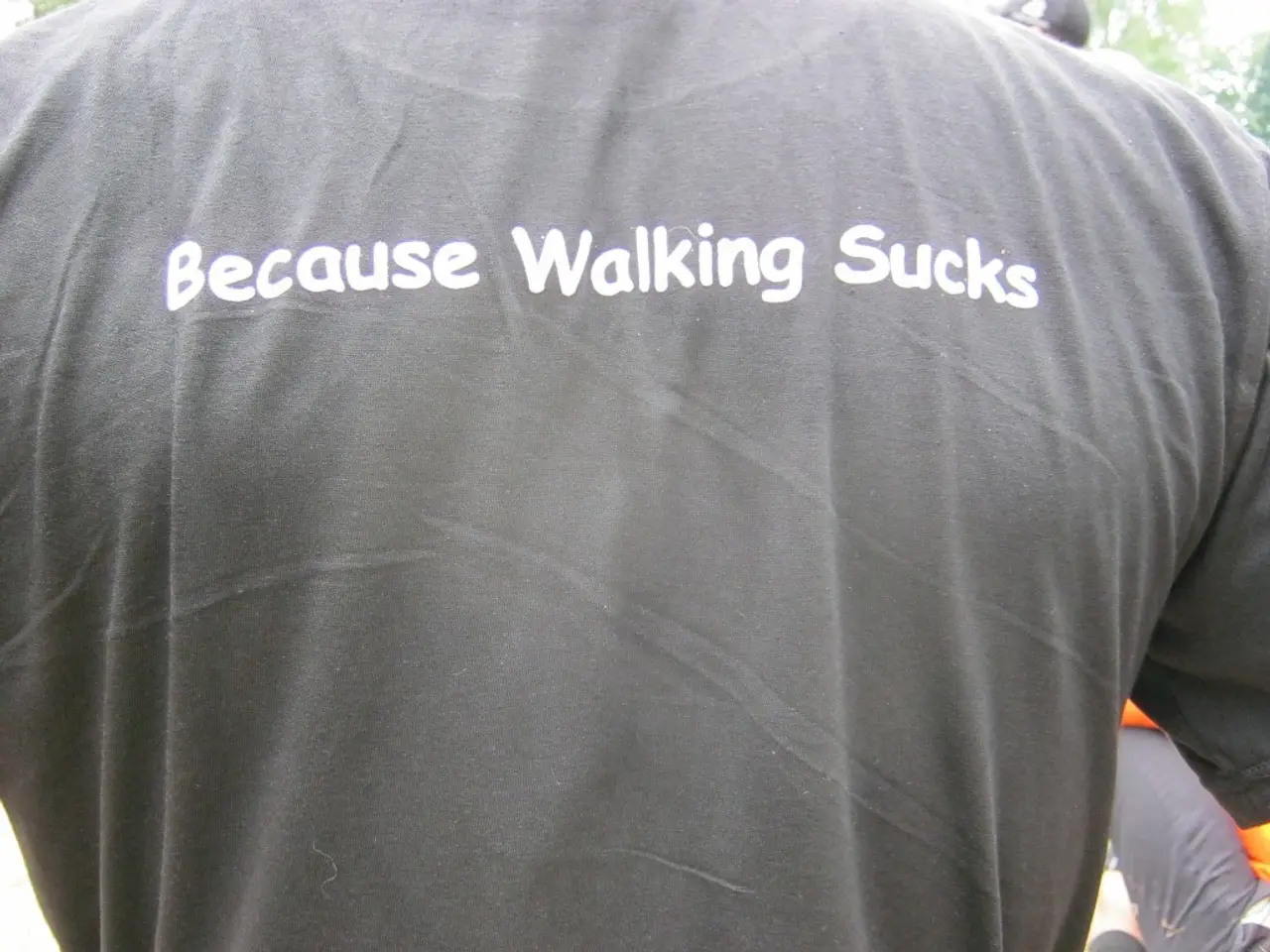Understanding and Conquering Inner Prejudice against Disability
In a society where worth is often equated with health and ability, it's no wonder that many individuals with disabilities struggle with internalized ableism. This unconscious adoption of society's negative beliefs about disabilities can lead to feelings of shame, doubt, and a desire to hide one's disability.
Media representations and cultural messages play a significant role in fostering internalized ableism. The dominant narrative typically portrays nondisabled people as the default or ideal, embedding the idea that disability is abnormal or inferior. This normalization of nondisabled standards leads disabled individuals to internalize feelings of inadequacy or lesser value compared to "normal" people.
The scarcity of positive disabled role models or affirming stories in media leads to struggles with self-acceptance, fostering internalized stigma around bodies and needs. For example, the absence of disability visibility was linked to internalized ableism around needing support or assistance.
Cultural messages of exclusion often dehumanize or exclude disabled people, contributing to social isolation. Disabled individuals may experience assumptions that they cannot contribute or belong fully to society. Such exclusion reinforces internalized ableism through reduced social connection and belonging.
Even within marginalized communities, disabled people face ableism that compounds feelings of exclusion and internalized stigma. Accessibility and inclusion are often overlooked culturally and in community spaces.
Internalized ableism can manifest in various ways, such as feeling like a burden, downplaying or hiding one's disability, measuring self-worth by productivity, comparing oneself to "more deserving" disabled people, and resisting identity-based labels.
However, it's essential to remember that reclaiming empowering language by using labels like "disabled" with pride instead of shame, and defining your identity in a way that honors your comfort level and lifts you up, is a crucial step in challenging internalized ableism. This is part of the broader movement of disability pride, which encourages accepting who one is now, recognizing and being proud of one's strengths, and advocating for one's needs without apology.
Unlearning internalized ableism is a process that won't happen overnight, but every small step taken toward living a self-compassionate life is progress. Seek support through therapy or peer spaces to identify, process, and understand internalized ableism, develop self-compassion, and start seeing how ableism is impacting one's life. Look for mental health professionals who understand disability justice and create spaces to help one honor interdependence.
Engage with the disabled community for support, healing, and a new perspective on life. This can be done by following creators, advocates, and influencers, seeking online content or media, joining support groups, and attending community events.
Reframe independence and productivity to understand that needing help or rest doesn't mean a lack of strength, independence, or productivity, but rather an acknowledgment of one's limits. Self-care, such as rest, balance, and accessibility, are rights one deserves, not weaknesses one is succumbing to.
Our website provides connections to affirming mental health professionals who can help navigate the unique challenges and strengths that come from living with a disability, and offers online therapy covered by Medicare and accepts most major insurance providers.
Sources:
[1] Newman, B. (2016). Internalized Ableism: The Hidden Barrier to Disability Empowerment. Independent Living News, 47(2), 12-15.
[2] Park, J., & Lee, M. (2020). The Intersection of Ableism and Racism: A Review of the Literature. Disability and Rehabilitation, 42(18), 1819-1827.
[3] Morrison, A. (2017). Media Representation and Disability: The Need for a More Inclusive Portrayal. Journal of Media Literacy Education, 10(1), 3-13.
[4] Linton, S. (1998). Claiming Disability: Knowledge and Identity. New York University Press.
[5] Tremain, S. (2018). Disability Pride: The History and Future of a Movement. Routledge.
- Unlearning internalized ableism is crucial for personal growth, and online therapy sessions can offer a safe space to navigate these complex feelings.
- The health-and-wellness sector should incorporate mental health professionals who specialize in mental-health issues related to disability, providing education-and-self-development resources for those struggling with anxiety or depression.
- In the realm of mental health, science has identified that media representations and cultural messages play a significant role in perpetuating ableism, contributing to depression and anxiety in disabled individuals.
- Embracing personal-growth opportunities involves seeking out positive role models within the health-and-wellness community, such as advocates in the disability movement who challenge ableism and promote mental health.




